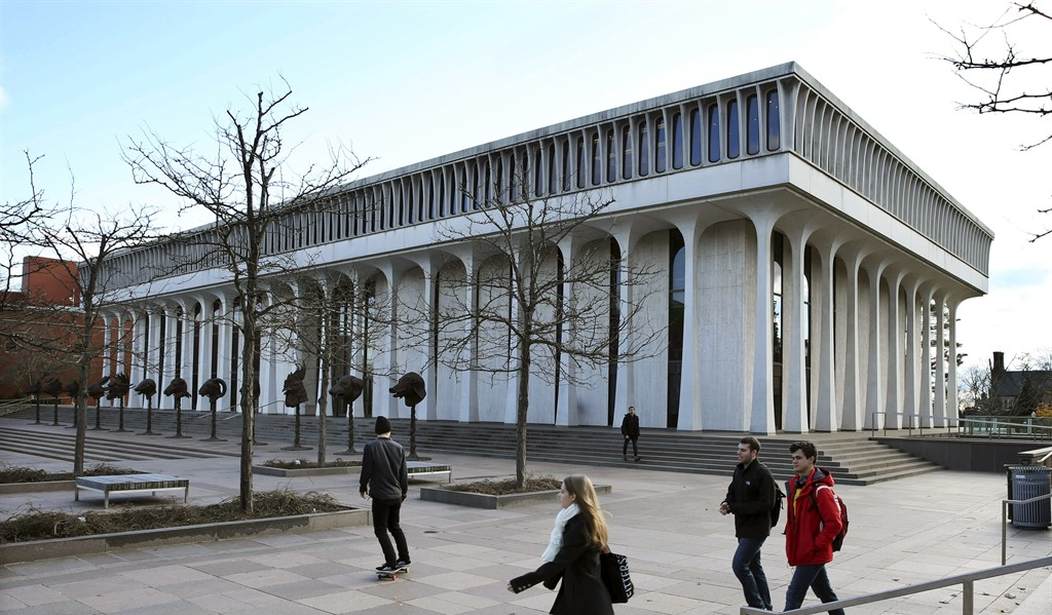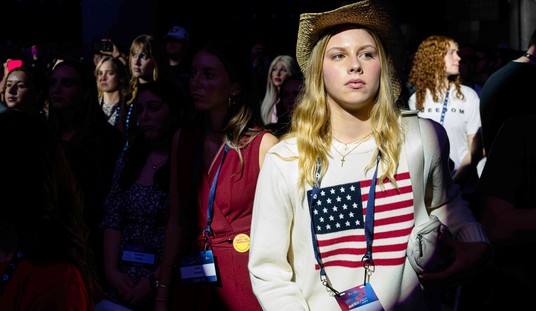“It’s tough to get into Princeton,” Chris Eisgruber tells CBS News reporter Tony Dokoupil, and that much is certain. What’s in question is whether it’s tougher for some than others on criteria other than pure academics. Princeton’s president tells Dokoupil that the university’s admissions process does “take race and ethnicity into account in building a diverse campus,” but that has some wondering about how “diverse” gets defined:
Princeton University’s president, Chris Eisgruber, says it’s a controversial process, but a race-conscious approach is necessary.
“If we wanted to, we could take students who had only perfect GPAs and only perfect board scores and fill a class with them,” Eisgruber said. …
In 2015, federal civil rights investigators reported “no evidence that the [Princeton] University used separate admissions processes, reviews, or tracks by race.” But according to documents released this spring, admissions officers often discussed applicants in racial terms: “no cultural flavor,” reads one review of an Hispanic applicant. “Very few African Americans with verbal scores like this,” reads another.
“Yes, I can guarantee that all of our students are held to an equal standard. It’s tough to get into Princeton and it’s tough to get into our other Ivy colleges regardless of what group you’re from, but everybody gets a fair shake,” Eisburger [sic] said.
Eisgruber got caught up in the media obsession over the Trump administration’s supposed attack on affirmative action. That turned out to be a false alarm; the Department of Justice plans to work on a complaint regarding only Harvard’s outcomes as discriminatory against Asian-American students. That doesn’t undermine affirmative-action policies or signal any change of direction at DoJ, but does indicate a desire to ensure that universities and colleges do not use a quota system which the Supreme Court has ruled unconstitutional.
That still leaves Eisgruber in the hot seat, especially for his insistence that “everybody gets a fair shake.” CBS News talks to one Asian-American student who feels he didn’t get a fair shake from the Ivy League despite his sterling academic credentials, and he believes his ethnicity has something to do with that. (On the other hand, he did get accepted by one of those Ivies, so …)
But what precisely constitutes a “fair shake”? Eisgruber rejects objective measures, dismissively telling CBS, “If we wanted to, we could take students who had only perfect GPAs and only perfect board scores and fill a class with them.” Er … it’s tough to see why that would necessarily be a bad outcome, to be honest, either academically or ethically. Would that not be a “fair shake,” considering the work that went into producing those accomplishments? And wouldn’t that tend to offer the best opportunities for success at Princeton, assuming it really does expect more of its students than almost all other universities and colleges, which is why the academic standards are so strict?
There actually are better arguments for selective admissions for the purpose of the kind of diversity that Eisgruber seeks. Justice Anthony Kennedy wrote about some of those compelling interests in Fisher last year:
While the court ruled in Schuette that government was not required to keep affirmative action programs, it then ruled in Fisher last year that affirmative action meets constitutional muster. Justice Anthony Kennedy, writing for the majority, declared that the state of Texas had a “compelling interest that justifies race in college admissions” in gaining “the educational benefits that flow from student diversity.”
Among the specific benefits of that diversity are “ending stereotypes,” promoting “cross-racial understanding,” preparing students for “an increasingly diverse workforce and society,” and cultivating leaders with “legitimacy in the eyes of the citizenry.” Texas presented data from a study that satisfied the court that “its race-neutral policies and programs did not meet its goals.” The main dissent from Justice Samuel Alito objected not on the basic constitutionality of the program but on whether it was narrowly tailored enough to meet the state’s compelling interests.
Kennedy’s argument provides a persuasive case, which is why it’s curious that Eisgruber doesn’t use it. If the purpose of admissions is to give students a “fair shake,” then it should focus on accomplishments rather than genetics. However, give Eisgruber full marks for honesty about the use of race and ethnicity in college admissions, even if he’s not quite adept at making the case for them.








Join the conversation as a VIP Member